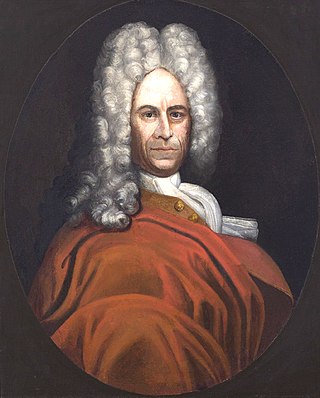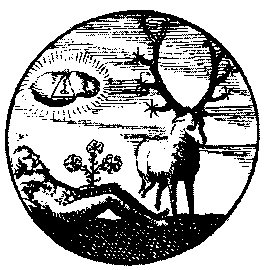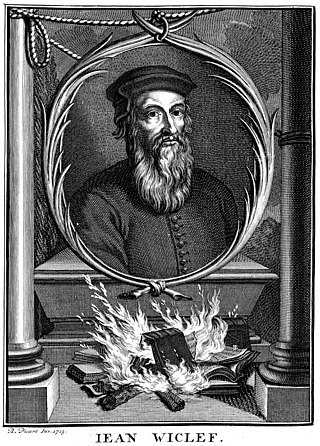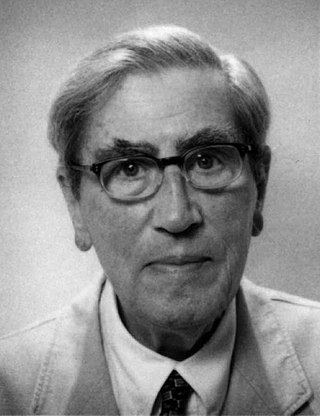Gestalt psychology, gestaltism, or configurationism is a school of psychology and a theory of perception that emphasises the processing of entire patterns and configurations, and not merely individual components. It emerged in the early twentieth century in Austria and Germany as a rejection of basic principles of Wilhelm Wundt's and Edward Titchener's elementalist and structuralist psychology.

Robert Fludd, also known as Robertus de Fluctibus, was a prominent English Paracelsian physician with both scientific and occult interests. He is remembered as an astrologer, mathematician, cosmologist, Qabalist, and Rosicrucian.

Herman Dooyeweerd, also spelled Herman Dooijeweerd, was a professor of law and jurisprudence at the Vrije Universiteit, Amsterdam from 1926 to 1965. He was also a philosopher and principal founder of Reformational philosophy with Dirk Vollenhoven, a significant development within the Neo-Calvinist school of thought. Dooyeweerd made several contributions to philosophy and other academic disciplines concerning the nature of diversity and coherence in everyday experience, the transcendental conditions for theoretical thought, the relationship between religion, philosophy, and scientific theory, and an understanding of meaning, being, time and self.

Christian Wolff was a German philosopher. Wolff is characterized as one of the most eminent German philosophers between Leibniz and Kant. His life work spanned almost every scholarly subject of his time, displayed and unfolded according to his demonstrative-deductive, mathematical method, which some deem the peak of Enlightenment rationality in Germany.
Reformational philosophy of society is a neo-Calvinistic movement pioneered by Herman Dooyeweerd and D. H. Th. Vollenhoven that seeks to develop philosophical thought in a Reformed Christian direction. It is related to the idea of a political community and can be traced back to 16th-century monarchomach thinking. This school of thought had a particular influence in the Netherlands and contributed to the country being the first modern nation state. Freedom of Conscience and the fight against tyranny have a special place in the Reformational philosophy of society.

Dirk Hendrik Theodoor Vollenhoven was a Dutch philosopher.
Klaas Johan Popma (1903–1986) was one of the second generation of reformational philosophers arising from the Free University (VU) in Amsterdam, after the first generation of Herman Dooyeweerd and D. H. Th. Vollenhoven. Other second generationers were: Hendrik Van Riessen, S. U. Zuidema and J. P. A. Mekkes.

Hendrik Van Riessen was one of the second generation of reformational philosophers arising from the Free University (VU) in Amsterdam, after the first generation of Herman Dooyeweerd and D. H. Th. Vollenhoven. Other second generationers were: K. J. Popma, S. U. Zuidema and J. P. A. Mekkes.

Niccolò Zucchi was an Italian Jesuit, astronomer, and physicist.
Jacob Klapwijk was a Dutch philosopher, and Emeritus Professor of Modern and Systematic Philosophy at the Vrije Universiteit, Amsterdam, known for his work on Ernst Troeltsch and historicism, Reformational thinking, the transformational task of Christian philosophy, and the theory of emergent evolution.
Johann Heinrich (Harry) Diemer was born in Dronrijp, the Netherlands. His father was the reverend N. Diemer, who served at the Reformed Church at Vijfhuizen. He studied biology at the University of Leiden. He studied the ideas of Abraham Kuyper, Herman Bavinck and Jan Woltjer, and soon became an adherent of Herman Dooyeweerd and D. H. Th. Vollenhoven's Reformational philosophy.
D. F. M. Strauss is a South-African philosopher and the world's leading expert on the theory of modal aspects, one of the core features of the thought of the Dutch philosopher, Herman Dooyeweerd, and the movement for Reformational philosophy.

In alchemical and Hermetic traditions, suns are used to symbolize a variety of concepts, much like the Sun in astrology. Suns can correspond to gold, citrinitas, generative masculine principles, imagery of "the king", or Apollo, the fiery spirit or sulfur, the divine spark in man, nobility, or incorruptibility. Recurring images of specific solar motifs can be found in the form of a "dark" or "black sun", or a green lion devouring the Sun.

Daniel Stolz von Stolzenberg (1600–1660) was a Bohemian physician and writer on alchemy, a pupil of Michael Maier in Prague. His name is often given as 'von Stolcenberg', i.e. from Stolzenberg, or 'von Stolcenbeerg'.

Johann Daniel Mylius was a composer for the lute, and writer on alchemy. Born at Wetter in present-day Hesse, Germany, he went on to study theology and medicine at the University of Marburg. He was the brother-in-law and pupil of Johann Hartmann (1568–1613).

The Rosary of the Philosophers is a 16th-century alchemical treatise. It was published in 1550 as part II of De Alchimia Opuscula complura veterum philosophorum (Frankfurt). The term rosary in the title is unrelated to the Catholic prayer beads; it refers to a "rose garden", metaphoric of an anthology or collection of wise sayings.

Proto-Protestantism, also called pre-Protestantism, refers to individuals and movements that propagated various ideas later associated with Protestantism before 1517, which historians usually regard as the starting year for the Reformation era. The relationship between medieval sects and Protestantism is an issue that has been debated by historians.

Jan Lever was a Dutch biologist specialized in zoology, endocrinology and evolutionary biology. His ideas on evolution may be characterized as a form of theistic evolution. Lever was an important voice in shaping Dutch public debate on evolution and biology, particularly in protestant circles.
Dutch philosophy is a broad branch of philosophy that discusses the contributions of Dutch philosophers to the discourse of Western philosophy and Renaissance philosophy. The philosophy, as its own entity, arose in the 16th and 17th centuries through the philosophical studies of Desiderius Erasmus and Baruch Spinoza. The adoption of the humanistic perspective by Erasmus, despite his Christian background, and rational but theocentric perspective expounded by Spinoza, supported each of these philosopher's works. In general, the philosophy revolved around acknowledging the reality of human self-determination and rational thought rather than focusing on traditional ideals of fatalism and virtue raised in Christianity. The roots of philosophical frameworks like the mind-body dualism and monism debate can also be traced to Dutch philosophy, which is attributed to 17th century philosopher René Descartes. Descartes was both a mathematician and philosopher during the Dutch Golden Age, despite being from the Kingdom of France. Modern Dutch philosophers like D.H. Th. Vollenhoven provided critical analyses on the dichotomy between dualism and monism.











